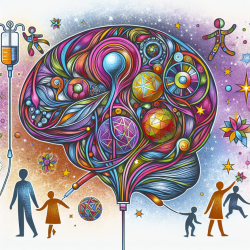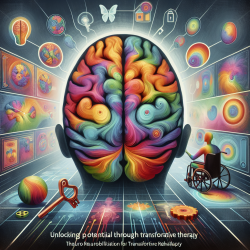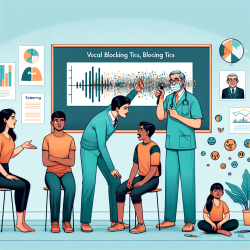As a Special Education Director, it is essential to stay informed about the latest research to enhance the support we provide to our students. A recent study titled Displacement and Emotional Well-Being among Married and Unmarried Syrian Adolescent Girls in Lebanon: An Analysis of Narratives offers valuable insights into the emotional challenges faced by displaced Syrian girls in Lebanon. This blog explores how practitioners can implement these findings to improve their skills and encourage further research in this critical area.
Key Findings from the Study
The study highlights that both married and unmarried Syrian adolescent girls experience significant emotional distress due to displacement. Common negative emotions include sadness, frustration, anger, and loneliness. However, some positive emotions such as hope, happiness, and empowerment were also noted. The study identifies four main themes impacting emotional well-being:
- Access to Education: Education plays a crucial role in the emotional well-being of these girls. Barriers such as different curriculums, certification issues, and language barriers cause frustration. Unmarried girls often face bullying and discrimination in schools, while married girls struggle with limited educational opportunities.
- Safety Concerns: Both married and unmarried girls express fear for their safety, whether due to harassment on the streets or domestic violence. This fear leads to restricted movement and feelings of isolation.
- Peer Support: The importance of peer support is evident, as it helps mitigate feelings of loneliness and isolation. Unmarried girls particularly benefit from friendships and social interactions.
- Longing for Life Back in Syria: Many girls express a strong desire to return to their pre-war lives in Syria, often feeling immense sadness and frustration with their current circumstances.
Implementing Research Insights
Practitioners can enhance their support for displaced Syrian girls by implementing the following strategies:
- Enhance Educational Opportunities: Collaborate with NGOs and educational institutions to provide continuous, accessible education. Address barriers such as geographical location and fear of harassment. Consider integrating educational programs with social activities to foster peer support.
- Address Safety Concerns: Implement violence prevention programs targeting both boys and girls. Raise awareness about gender-based violence and promote non-violent practices. Create safe spaces for girls to express their concerns and seek support.
- Foster Peer Support Networks: Encourage social interactions through organized activities, both within and outside educational settings. Facilitate opportunities for Syrian girls to connect with their Lebanese peers.
- Provide Mental Health Support: Offer mental health and psychosocial support services tailored to the unique needs of displaced adolescents. Consider low-intensity interventions that can be delivered by non-specialized personnel, such as peer-led support groups.
Encouraging Further Research
While this study provides valuable insights, further research is needed to explore the long-term impact of displacement on emotional well-being and the effectiveness of various interventions. Practitioners are encouraged to stay informed about new findings and incorporate evidence-based practices into their work.
To read the original research paper, please follow this link: Displacement and Emotional Well-Being among Married and Unmarried Syrian Adolescent Girls in Lebanon: An Analysis of Narratives.










